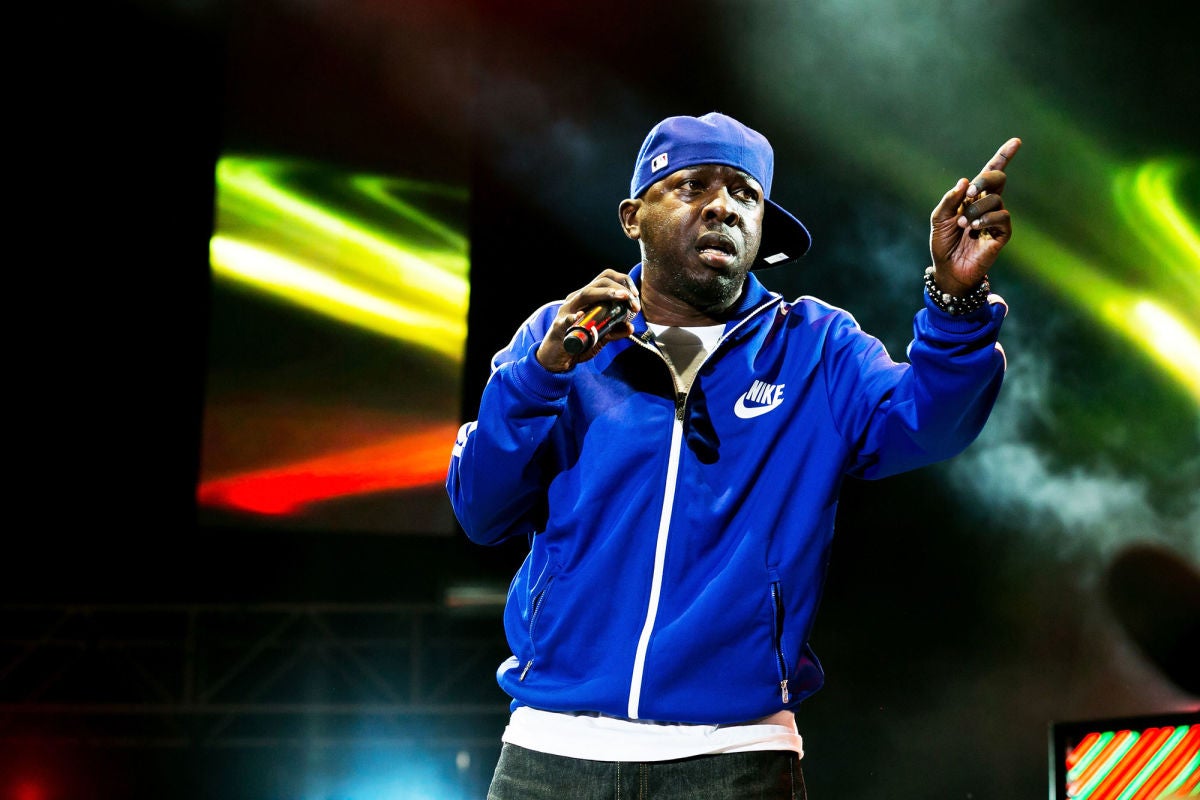How Phife Dawg helped me embrace being the odd one out
Long live the oddball of 90s hip-hop.

The 1990s was an era where rap was dominated by the likes of 2Pac, DMX, Notorious BIG and Busta Rhymes, all known for their intense, dramatic lyrics and vivid flows. However, Malik "Phife Dawg" Taylor, along with the rest of A Tribe Called Quest, offered an alternative, comedic relief on the stage of 90s hip-hop. Phife positioned himself with his signature playful approach to rapping. Instead of lyrics that would make you screw your face up and say “ohhh,” Phife had quick-witted nimble bars that would make you smirk and wonder why you didn’t get the pun the first time you heard it.
"You see my aura's positive, I don't promote no junk."
In many ways, Phife taught and still is teaching me to embrace my oddities. The first time I heard a Phife verse was in 2005, 10-years-old, right in the middle of 50 Cent’s reign over hip-hop, The Massacre had just come out and everybody in my neighbourhood was wearing Ecko Unlimited jeans and du-rags to pay homage to the new king of rap music. I was watching Beats, Rhymes & Life (how ironic) a show on MTV Base, right after they played the "Outta Control" video, a 50 Cent single featuring Mobb Deep, arguably the three most gritty rappers in history.
Up next, they threw it back to Tribe's "Buggin' Out." Imagine me watching the rap show to see a man not much taller than myself at the time, wearing a jumper that changed colours and fake eyes on his face, saying he’s got more rhymes than the Winans got family — referring to the large family of black Gospel singers from Detroit, who basically have five albums each. It didn’t make immediate sense, but it felt right. My first instinct was to laugh.
The next week, my mother bought me People's Instinctive Travels and the Paths of Rhythm, which I played on a Walkman CD player for hours on end. I was enchanted, and introduced to a new dimension of my favourite music genre. Where many rappers spoke about money, cars and gold chains, I simply couldn’t (and still can’t) relate. It always seemed like lyrics were more personal and intimate when Phife took the mic, often speaking on his personal issues. The first time I heard him say, “When’s the last time you heard a funky diabetic?” on “Oh My God,” I straight up grimaced. It was one of those very rare, vulnerable moments musicians allow you into their lives. Even though they aren’t in the same tax bracket, we're reminded that they are genuine human beings like us.
Phife also introduced me to the civil rights movement in the 90s, as he was a member and large figure of the Zulu Nation. Sometimes Phife even used his slick humour to fuel his more provocative lyrics, touching on police violence, corrupt politicians, the War on Drugs and opponents of hip-hop's values, which added another dimension to the already multifaceted rhymes. When Phife asked David Dinkins to be the mayor on “Can I Kick It,” a black Mayor in America was unheard of. It’s still seen as an iconic moment in hip-hop, as Dinkins went on the be mayor of New York City the same year as the track was written.
Not every MC be with the negativity, We have a slew of rappers pushin' positivity, Hip-hop will never die yo, it's all about the rap, So Marion Barry smokin' crack, let's preach about that
Back in January, Phife was critical of the current state of hip-hop: “Just a lot of laziness, whereas back when we were doing it everybody had their own lane. Nowadays it's one on top of the other. 'Oh, this sold three million with that style. Let me duplicate that style and run with it.' In order for us to see the future, everybody can't sound like Future. Like, everybody sounds like Future. Like, I don't know even know who's who outside of Future,” he told the Associated Press.
"Like, I don't know even know who's who outside of Future. It's the same thing," Phife continued. "You watch the hip-hop awards, and I watch it religiously because I'm hip-hop ...and it's like, 'Oh! I thought that was... wait a minute.' Because everybody sounds so much alike. I think we honored our craft a little bit more compared to now, there's a few who still honor their craft, the Kendricks, the J Coles, that whole Pro-Era crew... but there's not enough.”
Due to fight with on-going health conditions, Phife released one solo album, 2000's Ventilation: Da LP. But he still managed to leave a prolific mark on hip-hop with joints like "Bend Ova" and "Flawless." The album didn't reach the commercial success he attained with Tribe, he it was saluted by his peers, critics and hip-hop heads alike. This unique sound is one of the reasons he is still so iconic in hip-hop today, with his influence still reminiscently felt in today’s prominent hip-hop acts. So despite how critical he has been of this generation’s hip-hop his music remains a blue print for a lot of it.
With plans to release another album called MuttymorPHosis later this year, along with a few performances with the rest of Tribe, including a 25th anniversary performance of their debut album on The Tonight Show Starring Jimmy Fallon. I thought things were looking up for Phife, who at the time said that he felt positive about his health. The performance ended up being their last. At 45-years-old, a legend was taken from us way too early, but as he taught us: "God Lives Through."
Stay on point Phife,
Rest in peace.
Subscribe to Independent Premium to bookmark this article
Want to bookmark your favourite articles and stories to read or reference later? Start your Independent Premium subscription today.
